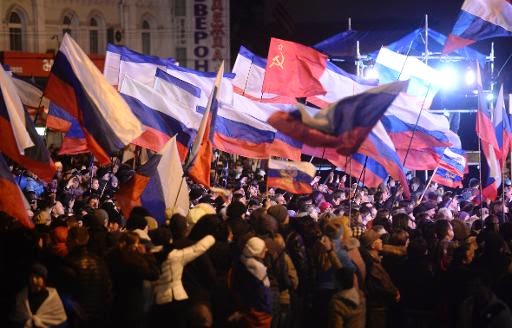DEFINHAMENTO DEMOCRÁTICO
O chefe da
burocracia da União Europeia, o inefável Durão Barroso, declarou na semana
passada que seria bom que PSD, PS e CDS apoiassem o mesmo candidato à
Presidência da República em 2016. Durão foi mais longe incluindo na sua lista
de desejos (exigências?) um consenso entre os 3 partidos para as eleições
legislativas de 2015.
Se se tratasse de um
mero delírio de um homem em fim de ciclo, seria algo descartável que
provavelmente nem mereceria referência em Tempos Interessantes.
Porém, não é assim.
Assistimos há anos
na Europa a uma crescente vertigem pelo chamado consenso. Mais exactamente,
pelo consenso alargado.
Em Portugal temos
sido martelados pelo famigerado consenso ao longo do último ano por Cavaco,
Coelho, Portas, pelos burocratas de Bruxelas e por personagens ligados à
finança e a grandes empresas.
Mas há mais
exemplos:
A Áustria foi
governada por uma Grande Coligação
dos seus dois maiores partidos (SPO – Partido Social-Democrata e OVP – Partido Popular) durante 34 anos entre 1945 e 2000. Após
um interregno de 7 anos, a Grande Coligação governa a Áustria desde 2007,
perfazendo 41 anos de poder desde a II Guerra Mundial.
A Alemanha também é
governada por uma Grande Coligação entre os seus dois
maiores partidos (CDU/CSU – União Social Cristã e SPD – Partido
Social-Democrata). Nos primeiros 56 anos de existência da Alemanha Federal,
houve apenas um governo da Grande Coligação (1966-1969). Projectando o actual
governo até ao final do mandato (2017), teremos
8 anos de Grande Coligação num
período de apenas 12 anos (2005/2017).
A Grécia é governada
(?) por uma Grande Coligação entre a
Nova Democracia (Centro Direita) e o PASOK (Socialista), apesar de ambos os
partidos terem sofrido enormes perdas nas duas últimas eleições.
A Itália é (des)governada
por uma Grande Coligação que une a
Esquerda aglomerada numa
coligação liderada pelo Partido Democrático, a Direita compactada noutra coligação liderada pelo Partido da
Liberdade de Silvio Berlusconi e ainda
uma coligação centrista mais pequena liderada pela Escolha Cívica.
Qual é a relevância
de tudo isto?
É o esvaziamento das
alternativas. A Democracia implica escolha e uma escolha com sentido requere a
existência de reais alternativas. Os maiores partidos, normalmente dois, são os principais (ou
únicos) candidatos a liderar governos. Se ambos, ou todos, defendem a mesma
plataforma eleitoral, se combinam as políticas e as medidas, qual é a serventia
das eleições?
O resultado é um
pensamento único, uma só estratégia, um conjunto de políticas uniformes, em
suma, um jogo viciado em que o eleitor é colocado perante uma escolha entre uma
coisa e outra igual.
Os Porcos de “Animal
Farm” (“Triunfo dos Porcos”). Também eles representavam o governo das elites,
pelas elites, para as elites.
in http://rosariomariocapalbo.wordpress.com/2011/04/10/george-orwell-dystopian-novel-1984-animal-farm/
Esse é um dos
factores desmobilizadores do eleitorado. Quanto maior é a abstenção e quanto
mais aumentam os votos brancos e nulos, menor é a legitimidade democrática dos
parlamentos e governos que emanam dessas eleições. Infelizmente, a experiência
mostra-nos que os partidos só (fingem que) se preocupam com estes fenómenos na
noite eleitoral. Depois disso, garantida a presença nos e o domínio dos órgãos
legislativo e executivo, it is business
as usual.
Outra componente desta estratégia é a eleição da política seguida
como a única válida e a demonização das alternativas: ser contra as directrizes emanadas de Berlim, Bruxelas ou
Frankfurt é anátema. Ser nacionalista, ser socialmente conservador, ser pio (se
for cristão), ter reservas sobre a imigração, ter uma visão mais estatizante da
economia, ser favorável a um Estado Social forte ou de cortes nos privilégios
da banca constituem um elenco de alguns delitos de opinião que nos podem levar
à fogueira da inquisição da elite europeia. A indignação (miserável, diga-se) com que foi acolhido o “Manifesto dos
74”, é um exemplo desta intolerância e de uma pulsão fortemente
anti-democrática.
É óbvio que esta consensualização coerciva não é inocente, nem
acidental. Ela visa a perpetuação dos mesmos protagonistas no poder (partidos e
políticos) e também perpetuar as linhas estratégicas e as políticas que vêm sendo genericamente seguidas nas duas últimas décadas.
Desta forma, o sistema político vai deslizando da
democracia para uma oligarquia em que os grupos dominantes (partidos,
grandes interesses financeiros e económicos e a burocracia) efectivamente drenam a vitalidade
democrática, retirando valor às eleições, fazendo letra morta dos programas
eleitorais e restringindo ou eliminando os referendos.
É esta auto-nomeada vanguarda
esclarecida quem hoje, cada vez mais, põe e dispõe dos destinos de muitos
países da Europa, à revelia dos cidadãos e frequentemente contra eles.
P.S. Outra das consequências da standardização dos partidos é a procura de
alternativas nas franjas do sistema político. Foi assim que foi
interrompido o duopólio austríaco em 1999: o FPO (Partido Liberal Popular),
conotado com a extrema-direita, obteve 27% dos votos e integrou o governo de
Viena com o OVP. As elites dominantes na
Europa ficaram chocadas, como ficaram ontem com os sucessos da Front Nationale
em França, como se espantaram com o ressurgimento do PCP e como vão ficar
revoltados com o previsível sucesso de vários destes partidos marginais ao
sistema (non-mainstream) nas próximas eleições europeias.
Talvez quando alguns destes partidos ganharem mesmo, aprendam a
lição. Contudo, então talvez seja demasiado tarde.
POSTS RELACIONADOS:
“PENSAMENTO ÚNICO”, 02/12/2012 em
“THE GREAT LEAP FORWARD” (PEQUIM 1958 – BRUXELAS 2012) em
http://tempos-interessantes.blogspot.pt/2012/06/great-leap-forward.html




